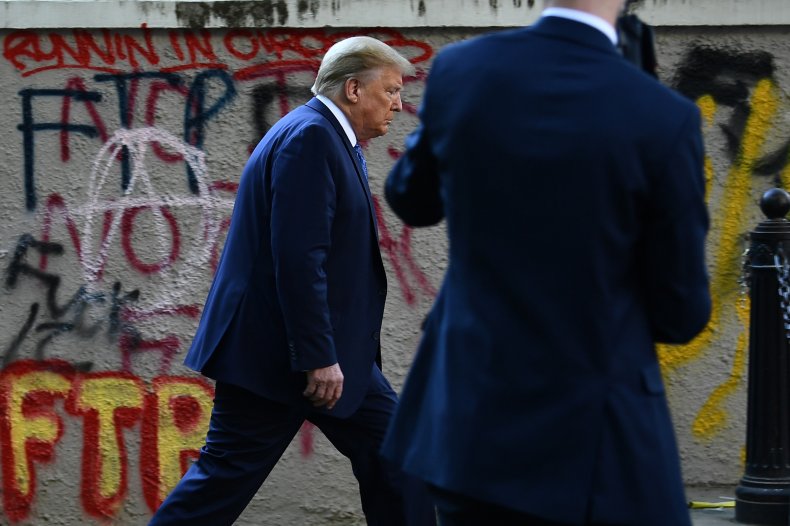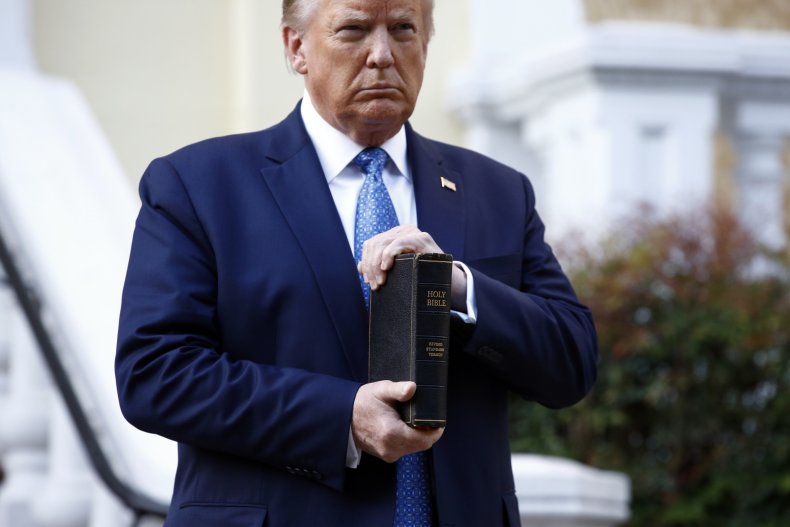Judge Rules There Isn't Enough Evidence to Charge Barr, Trump Over Protesters' Removal
A federal judge ruled there is not enough evidence to charge former Attorney General William Barr and then-President Donald Trump over the forced removal of protesters from Lafayette Square in Washington, D.C. last June.
U.S. District Judge Dabney Friedrich dismissed the lawsuit's claims that Trump and Barr planned in advance to violate the rights of those protesting racial injustice. It was filed by the ACLU of DC, the Washington Lawyers' Committee for Civil Rights and Urban Affairs, the Lawyers' Committee for Civil Rights Under Law and the law firm of Arnold & Porter in support of Black Lives Matter DC and individual protesters, the Associated Press reported.
"We will always stand up for the rights of those peacefully demonstrating for racial justice, and this ruling sends the wrong message for police accountability efforts at a time when it is needed the most," said Arthur Ago, the head of the Lawyers' Committee for Civil Rights Under Law's criminal justice project, in a statement.
Law enforcement forcibly removed the protesters last June with smoke bombs and other aggressive dispersal methods. Friedrich proceeded with the lawsuit's claims against the Metropolitan Police Department and the Arlington Police Department since both departments' officers were involved.
For more reporting from the Associated Press, see below.

The protesters were removed before Trump walked to a church near the White House for a photo op.
Friedrich said Monday the claims in the suit against Trump and Barr were speculative and it was premature for the court to conclude whether the actions of law enforcement officers were justified.
Friedrich dismissed the claims against Barr and other federal officials, including the acting U.S. Park Police chief, Gregory Monahan, finding there wasn't sufficient evidence to prove there was any agreement or plan to violate the rights of the protesters. The judge also said the law gives them immunity in civil litigation.
In a 51-page decision, the judge did allow the claims against the Metropolitan Police Department and the Arlington Police Department to proceed.
The lawsuit stemmed from one of the most high-profile moments of the Trump presidency, when federal and local law enforcement officials aggressively forced a group of largely peaceful protesters back from Lafayette Square outside of the White House, firing pepper balls into the crowd to disperse the group. Officers were seen shoving protesters and journalists as they pushed the crowd back.
Barr has said he met with other law enforcement officials earlier that day to review a plan to extend the security perimeter around the White House to protect federal agents after days of unrest in Washington following the death of George Floyd at the hands of police officers in Minneapolis.
After the crowd was forcefully dispersed, Trump, followed by an entourage of his most senior aides — including Barr — along with Secret Service agents and reporters, walked over to St. John's Church, a landmark building where every president has prayed, which had been damaged a day earlier in a protest fire.
Ago said the ruling set an "extremely dangerous precedent" and that former officials like Barr were "getting off scot-free."


